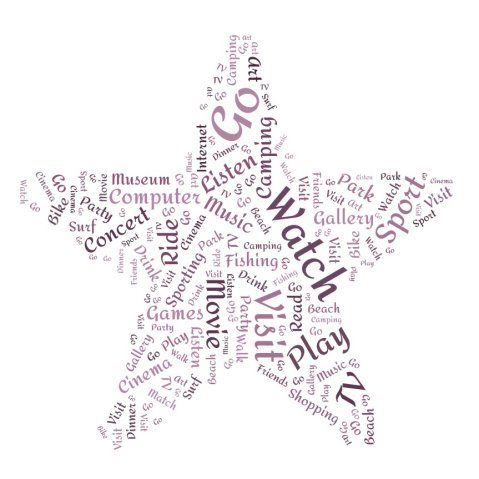Урок з англійської мови в 11 класі. Conditionals
Theme: The 1st and 2nd Conditionals
Subtheme: Free time
Aims: To help students extend their vocabulary; to develop students' communicative skills; to improve grammar skills (the 1st and 2nd Conditionals)
До підручника Калініна Л. В., Самойлюкевич І. В.
Theme: The 1st and 2nd Conditionals
Subtheme: Free time
Aims: To help students extend their vocabulary; to develop students’ communicative skills; to improve grammar skills (the 1st and 2nd Conditionals)
Procedure
І. Introduction
Announcing the topic and aim of the lesson
1. TEACHER: Good morning! I am very glad to see you. How are you today? At our today’s lesson we will speak about your free time. We also will practice your grammar with Conditionals. So, open your copybooks and put down the date and the topic.
2. Work with vocabulary
Let’s repeat the words on page 23 in your book:
Academic English
- to get a discount
- special offer
- to strike up acquaintance with sb
- to get a cultural improvement
- to be associated with
- to be in favor of sth
- to present a constant diet of sth
Conversational English
- abseiling
- to corn up with sth
- to show enthusiasm about sth
- to feel like doing sth
- luxurious
- to overlook sth
- to tempt sb out
- to be keen on sth
- to be dead against sth
- That's for sure
- No way!
- Sort of OK
- There's no room to swing a cat
II. Main part of the lesson
-
 Look at the picture and find out different activity that people can do in their free time.
Look at the picture and find out different activity that people can do in their free time.
2. Nom write a list of 5 things you like doing on your free time.
2.1 If you finish, ask each other “What do you like doing on your free time?” and find 3 people who like doing the same as you do.
3. Look at p. 25, read the rules.
Rule 1. Real conditions express situations that can happen in the present or future. They are often used when stating facts, general knowledge, habits, predictions, advice, or instructions.
Rule 2. Real conditions in the present (factual) use the simple present tense form of the verb in both the if clause and the result.
Rule 3. Real conditions in the future (real possibility) use the simple present tense form of the verb in the if clause + modal or modal phrase (should/can/could/may/might, will, be going to, have to) and the base form of the verb or the imperative in the result clause.
Rule 4. Negative forms of the verb can be used in the condition or result clause or both.
4. EXERCISE 1. Circle the correct verb in the if clause or result clause to make a 1st Conditional
Playing at the Park
Every weekend, if the weather is nice, I (will spend/spend) time outside with my children. One of their favorite things to do is to go to a nearby park. If we ride our bikes to the park, it (takes/will take) about 10 minutes. If there (is/will be) a lot of traffic, it takes a little longer. Once we get to the park, the kids choose their favorite playground equipment to play on. Jeffrey likes the climbing walls, but if he (climbs/will climb) too high, I start to get nervous.
I always have to remind him, “If you’re not careful, you (fall/will fall) and hurt yourself.” His reaction is usually to roll his eyes at me. My daughter Cheryl loves to play on the seesaw. On the way to the park, she almost always asks me, “Mom, if there (is/will be) no one for me to play with, (do/will) you go on the seesaw with me?” If she (finds/will find) someone to play with at the park, she (will spend/should spend) the entire time on the seesaw. Sometimes I talk to the other parents who are there. After an hour or so, the kids and I ride our bikes back home. On the way, I tell them “If the weather is nice next weekend, we (come/will come) back.”
6. EXERCISE 4. Form a small group. Make a chain of conditionals: The first person will offer a sentence using a 2nd Conditional. The second person will change the result clause in the original sentence to an unreal if clause and will add a new result clause. The third person will change the new result clause to an unreal if clause and will add a new result clause. How long can you keep the chain going? See the example if you need help getting started.
Examples: Person1 – If I had more time, I’d go to art-school.
Person 2 – If I went to art-school, I would study computer graphics.
Person 3 – If I studied computer graphics, I could be a famous web- designer.
Person 4 – If I were a famous web- designer, I would . . .
III. Conclusion
- Do the exercise B on page 26-27


про публікацію авторської розробки
Додати розробку
